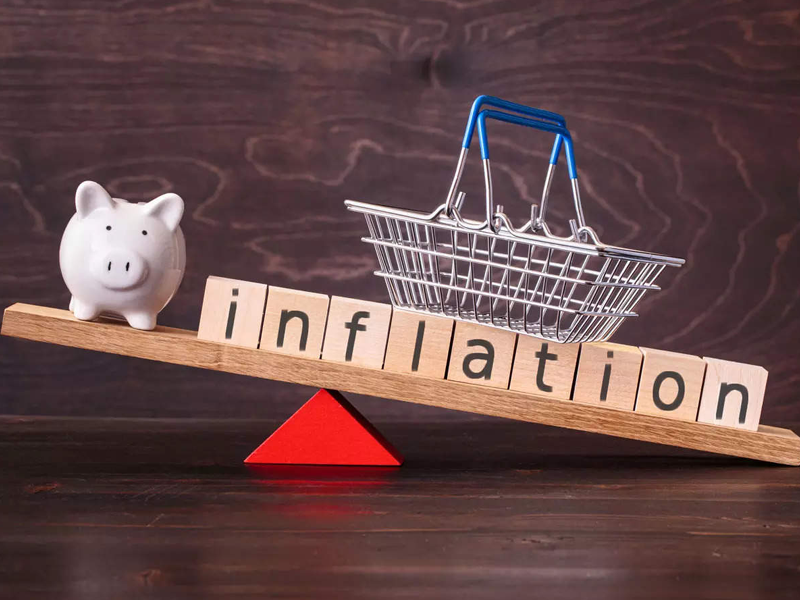Rapidly increasing inflation engulfs everything

- 223
- 0
The rapidly increasing inflation in the country has engulfed every sector of business life. Even a sensitive sector like health has not been spared from this, which can be estimated from the fact that due to high inflation, the government has approved to increase the price of medicines up to 20%, but this increase is one-time and in case of improvement, the prices of medicines will be revised again after three months and there will be no increase in this sector in the next financial year.
Several months ago, the associations of pharmaceutical companies had demanded a 39 percent increase in prices, which was rejected by the government, resulting in a severe shortage of medicines as a result of tension between the pharmaceutical industry and the Ministry of Health. The ECC has allowed price hikes to ensure continuous availability of medicines in the market. The Ministry of National Health Services, Regulations and Coordination has presented a summary of the increase in maximum retail prices of medicines based on the recommendations of the DRAP Policy Board in the context of inflation.
Manufacturers and importers have been allowed to increase the existing retail price of essential medicines by 70% of the total CPI, but a cap of 14% has been applied on the price, while the price of other medicines will be increased by 70% of the CPI. Pakistan Pharmaceutical Manufacturing says that the increase is much less than what was expected. In order to get a package of 1.1 billion dollars from the IMF, the rate of inflation has reached the highest level due to the removal of subsidies and the imposition of heavy taxes. The common man will be adversely affected by the increase.
As a matter of fact, not only medicines, but every sector is adversely affected by the price hike and the Ministry of Finance has released monthly economic update and outlook report, in which the Ministry of Finance has expressed the fear of further increase in inflation in the country.
According to the report of the Ministry of Finance, the inflation rate is likely to be 36 to 38 percent in April, while the inflation rate in March 2023 was 35.4 percent.
The results are coming due to which the exchange rate will stabilize. The report states that the completion of the IMF program will bring remittances and reduce inflation.
According to the report of the Ministry of Finance, remittances decreased by 10.8% from July to March, exports decreased by 11% and imports decreased by 21.8% during the same period and the current account deficit decreased by 74.1%. According to the report issued by the Department of Statistics, after the increase in the prices of essential commodities by 0.15% during the week ending on April 29, the annual inflation rate has reached 46.82% in sensitive indicators.
It is commonly observed that the prices of food items reach the highest level of the year during the month of Ramadan, but the situation improves later on. In recent days, the graph of price hike continues to rise even after the passing of Eid.
Contrary to the previous years when prices used to come down after Eid, they are skyrocketing this time and it is mainly the essential kitchen items which have been registering a continuous hike Even the Eid-ul-Fitr festivities were marred by a record price hike. On Chand Raat, which is , one of the most traded occasion in Pakistan, could not see that usual rush in the market due to the specter of price hike, which kept the shopper at bay from the market and cast a shadow over the shopping spree. Eid related items like clothing, and cosmetics prices were extremely high and made it difficult for the common man to buy and become part of the Eid festivities with the same fervor as in previous years.
Similarly, the prices of clothes have also surged, and the quality of the fabrics has decreased. Many shopkeepers have admitted to selling fake or low-quality products to meet the demand for cheap clothes. This practice not only deceives the customers but also harms the local textile industry.
The cosmetics industry and beauty salons and beauty parlors also received less customers on this Eid due to the inflationary pressure. Perfumes, makeup and beauty products and accessories, and hair care prices were high by almost 30 percent. Even the well do to people were opting for cheap and low quality products due to inflation pressures.
According to the data obtained from more than 50 markets of 17 cities of the country, during the last seven days, the prices of 21 items increased, seven decreased while the prices of 23 remained the same. Prices of flour, bread, potatoes, tea, eggs, basmati rice, fruits, pulses and soap increased further while tomato, onion and sugar decreased slightly.
According to economists, under the program given by the IMF, the government is forced to withdraw the subsidy given in the prices of fuel and electricity to cover the financial deficit, so the inflation is seen to increase further in the coming months. On the other hand, in the monthly economic report of the Ministry of Finance, the fear of further increase in inflation has been expressed.
Due to the decrease of 10.8 and 11% in remittances and exports respectively and the situation of imports remaining unchanged, the extraordinary burden on the economy has become a challenge for the government.
The recent inflation is affecting the salaried class the most, while others make up the difference in their income by increasing their services and wages and by increasing the prices of products. Therefore, it is necessary to increase the salaries of public and private employees reasonably in the upcoming budget so that they can get some relief from the severe inflation.
Published in The Daily National Courier, May, 03 2023
Like Business on Facebook, follow @DailyNCourier on Twitter to stay informed and join in the conversation.

















































